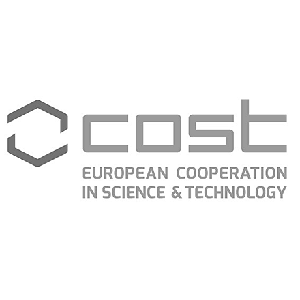Contact
hallvard.wie@slu.se, +46 18 67 1288, +46 767 645390

COST – a funding organisation for research and innovation networks
COST (European Cooperation in Science and Technology) is an EU-funded programme that supports the creation of research networks, called COST Actions. These networks should advance science, stimulate knowledge, and share and pool resources to address scientific, technological and societal challenges. The COST programme currently includes 39 countries, and thus reaches well beyond the European Union.
COST Actions are open to researchers and innovators from academia, industry, NGOs, government agencies and SMEs. At the time of submission, a proposed COST Action must include partners from at least seven COST member countries, sharing a common interest in any area of science or technology, including interdisciplinary as well as new and emerging fields. COST is bottom-up, meaning that researchers can propose the formation of a network based on their own interests and ideas.
COST does not fund research, it provides funding to support networking activities, such as conferences, meetings, training schools, workshops and short scientific exchanges, as well as dissemination activities. Typically, COST Actions are funded for four years, but may be extended if successful. COST Actions should be dynamic, so it is possible to add and remove partners throughout the lifetime of the network. An average COST network consists of 30 members and receives funding of around €135,000 per year.
Within a COST network, you can receive travel reimbursements and contributions to shorter research exchanges and publications. COST only funds indirect costs (overheads) for project coordinators. The grant does not cover salary costs for time spent on a COST Action; you (or your department) will be responsible for funding your time.
Note, a SLU researcher participating in a COST action (where SLU is not the Grant holder) represents only him/herself – SLU has no formal part in the action. Thus, SLU receives no money from the action and therefor the researcher should not ask for significant administrative support from the department.
When coordinating a COST action, your organisation (SLU) gets 15 per cent of the budget to cover administrative costs. It may cover part of the salary of the researcher who is the Chair of the network and the economist / administrator who administers the project. Their travel expenses to the annual meeting can also be paid from these 15 per cent
To apply to COST, you submit a proposal via their online application system, e-COST. You can submit a proposal for a new COST Action at any time, but they are collected and evaluated twice a year (usually in April and October).
A COST proposal consists of two parts, an online form including all formal information, and a detailed description of the network's orientation, goals and purpose in a technical annex, uploaded as a PDF of up to 15 pages. You can download templates and instructions for how to structure the technical annex from the COST website.
To be eligible for funding, your network must include at least seven COST members as partners, of which at least 50% should come from so-called “Inclusiveness Target Countries - ITCs”, representing a number of less research-intensive countries, listed on the COST website. Individual researchers can also join existing networks.
You can find detailed step-by-step information on how to apply for a COST Action in the document "Submission, Evaluation, Selection and Approval of COST Action Proposals" – the SESA guidelines (pdf).
If you have questions about coordinating or participating in a COST Action, please get in touch with the Grants Office at grantsoffice@slu.se
If you are taking part in a COST network, you must purchase your travel on your own card, enabling you to receive direct reimbursement from the project. You can do this through SLU's travel agency Egencia if you choose. When you reach the point of payment, you should select "COST action payment with your own credit card" instead of the usual payment through SLU's Diners account. You should always choose this payment method in Egencia if you are travelling for a COST network, and only for this purpose. The trip will therefore not be invoiced SLU, and you should not prepare a travel claim for these trips. Instead, you will report the costs in the e-COST system following COST's regulations and receive reimbursement to your private bank account.
When SLU acts as Grant holder in a COST network 15 per cent of the budget will be dedicated to SLU to cover administrative costs. This money may also be used for covering parts of the salary for the researcher chairing the network and an administrator. Travel costs to annual meetings can be charged to this money.
All participants in the network submit their travel claims through the web-based system e-COST. These are checked and subsequently paid by SLU. COST offers free-of-charge training sessions for those administrating a COST action. Within UBW a dedicated project should be established where salary costs and the 15 per cent is booked. This money will be exchanged to SEK. Money to be paid to participants remain on the Euro account.
hallvard.wie@slu.se, +46 18 67 1288, +46 767 645390